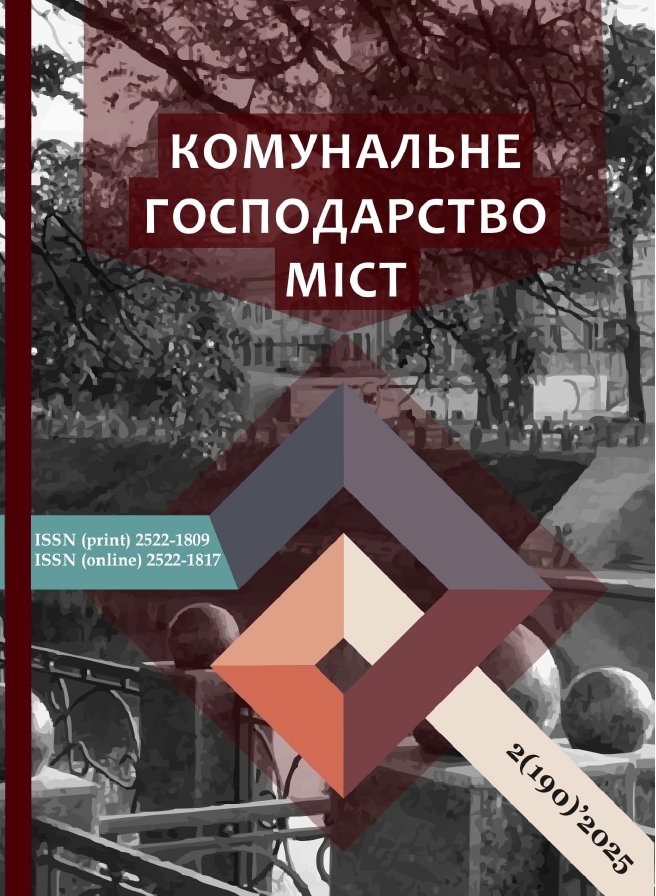TRANSFORMATION OF GLOBAL COMPETITION UNDER THE INFLUENCE OF GEOPOLITICAL FACTORS
DOI:
https://doi.org/10.33042/2522-1809-2025-2-190-22-28Keywords:
political factors, global competition, international competitiveness, national economiesAbstract
The article examines the impact of political factors on the competitiveness of national economies in the context of globalization. Key political instruments influencing international economic interaction are analyzed, including state regulation, sanctions, international agreements, and political stability. The study explores how political decisions shape business conditions and access to global markets, affecting the structure of international competition.
Particular attention is given to the uneven distribution of economic opportunities between developed and developing countries. International economic organizations, such as the IMF and WTO, are formally aimed at ensuring fair competition; however, their policies often favor stronger states, exacerbating economic asymmetry. Protectionist measures used by governments to support national producers are also analyzed, illustrating how these policies can simultaneously restrict access for new market entrants.
The authors emphasize that political factors can both foster economic growth and create barriers to international competition. Possible mechanisms to mitigate the negative impact of political risks include strengthening international cooperation, reforming global regulatory mechanisms, and increasing economic transparency. The study proposes recommendations for enhancing national economic resilience, particularly for developing countries, through policy adaptations and institutional reforms.
Furthermore, the role of educational initiatives and analytical research in improving market transparency and reducing geopolitical risks is considered. The authors suggest that investments in human capital, knowledge exchange, and independent economic assessments can help level the playing field for all market participants. Additionally, digital transformation, open data initiatives, and international economic partnerships are highlighted as essential tools in overcoming structural disparities and fostering inclusive competition.
The findings provide valuable insights for researchers, policymakers, and economists dealing with national competitiveness in a globalized world. The proposed recommendations aim to establish a more balanced system of international competition that accommodates the interests of both developed and developing nations while addressing political and economic inequalities.
References
Скрипник, Н., Чорна, О., Харенко, В. (2023). Трансформація бізнес-стратегій в контексті протидії воєнним геополітичним викликам. Журнал економічних досліджень, № 45(1), С. 112-128. URL : https://ir.kneu.edu.ua/items/e78764a1-75d9-4997-a058-51e98cc31b5c.
Кравчук, Н. (2024). Вплив глобальних трендів на формування геостратегії конкурентоспроможності держави. Геополітика та економічний розвиток, № 19 (2), С. 55-70. URL : https://empirio.ukma.edu.ua/article/view/308312.
Лук’яненко, Д., Тітова, О. (2023). Глобальна модифікація конкурентних механізмів ринку. Міжнародна економіка та політика, № 27(4), С. 211-230. URL : https://journals.uran.ua/jiep/article/view/27566.
Porter, M. E. (1990) The Competitive Advantage of Nations. New York: Free Press. Retrieved from: https://economie.ens.psl.eu/IMG/pdf/porter_1990_-_the_competitive_advantage_of_nations.pdf.
Rodrik, D. (2011) The Globalization Paradox: Democracy and the Future of the World Economy. New York: W.W. Norton & Company. Retrieved from: https://drodrik.scholar.harvard.edu/publications/globalization-paradox-democracy-and-future-world-economy.
Stiglitz, J. E. (2002) Globalization and Its Discontents. New York: W.W. Norton & Company. Retrieved from: https://www.anderson.ucla.edu/faculty/sebastian.edwards/Stiglitz.pdf
Nye, J. S. (2004). Soft Power: The Means to Success in World Politics. New York: PublicAffairs. Retrieved from: https://www.belfercenter.org/sites/default/files/pantheon_files/files/publication/joe_nye_wielding_soft_power.pdf.
Ostry, J. D., Loungani, P., & Furceri, D. (2016) Neoliberalism: Oversold? IMF Finance & Development, 53(2). Retrieved from: https://www.imf.org/external/pubs/ft/fandd/2016/06/ostry.htm.
Easterly, W. (2006). The White Man’s Burden: Why the West’s Efforts to Aid the Rest Have Done So Much Ill and So Little Good. New York: Penguin Press. Retrieved from: https://academic.oup.com/jiel/article-abstract/10/4/1009/2193499?redirectedFrom=fulltext.
Moyo, D. (2009). Dead Aid: Why Aid Is Not Working and How There Is a Better Way for Africa. London: Penguin Books. Retrieved from: https://www.researchgate.net/publication/38091995_Dead_aid_Why_aid_is_not_working_and_how_there_is_a_better_way_for_Africa.
Baldwin, R. (2016) The Great Convergence: Information Technology and the New Globalization. Cambridge: Harvard University Press. Retrieved from: https://www.hup.harvard.edu/books/9780674237841.
Білик, Р. С., Білик, Д. Р., Гаврилюк, О. В. (2024). Економічна сутність та чинники формування міжнародної конкурентоспроможності національної економіки. Регіональна економіка, № 1, С. 95-102. URL :
https://re.gov.ua/doi/re2024.01.095_u.
Горник, В. Г., Євмєшкіна, О. Л., Клименко, О. В. (2022). Вплив глобалізації на реалізацію державної політики забезпечення конкурентоспроможності економіки України. Вчені записки ТНУ імені В. І. Вернадського. Серія: Публічне управління та адміністрування, 33(72), №6, С. 68-74. URL : https://pubadm.vernadskyjournals.in.ua/journals/2022/6_2022/11.pdf.
Downloads
Published
How to Cite
Issue
Section
License
The authors who publish in this collection agree with the following terms:
• The authors reserve the right to authorship of their work and give the magazine the right to first publish this work under the terms of license CC BY-NC-ND 4.0 (with the Designation of Authorship - Non-Commercial - Without Derivatives 4.0 International), which allows others to freely distribute the published work with a mandatory reference to the authors of the original work and the first publication of the work in this magazine.
• Authors have the right to make independent extra-exclusive work agreements in the form in which they were published by this magazine (for example, posting work in an electronic repository of an institution or publishing as part of a monograph), provided that the link to the first publication of the work in this journal is maintained. .
• Journal policy allows and encourages the publication of manuscripts on the Internet (for example, in institutions' repositories or on personal websites), both before the publication of this manuscript and during its editorial work, as it contributes to the emergence of productive scientific discussion and positively affects the efficiency and dynamics of the citation of the published work (see The Effect of Open Access).

